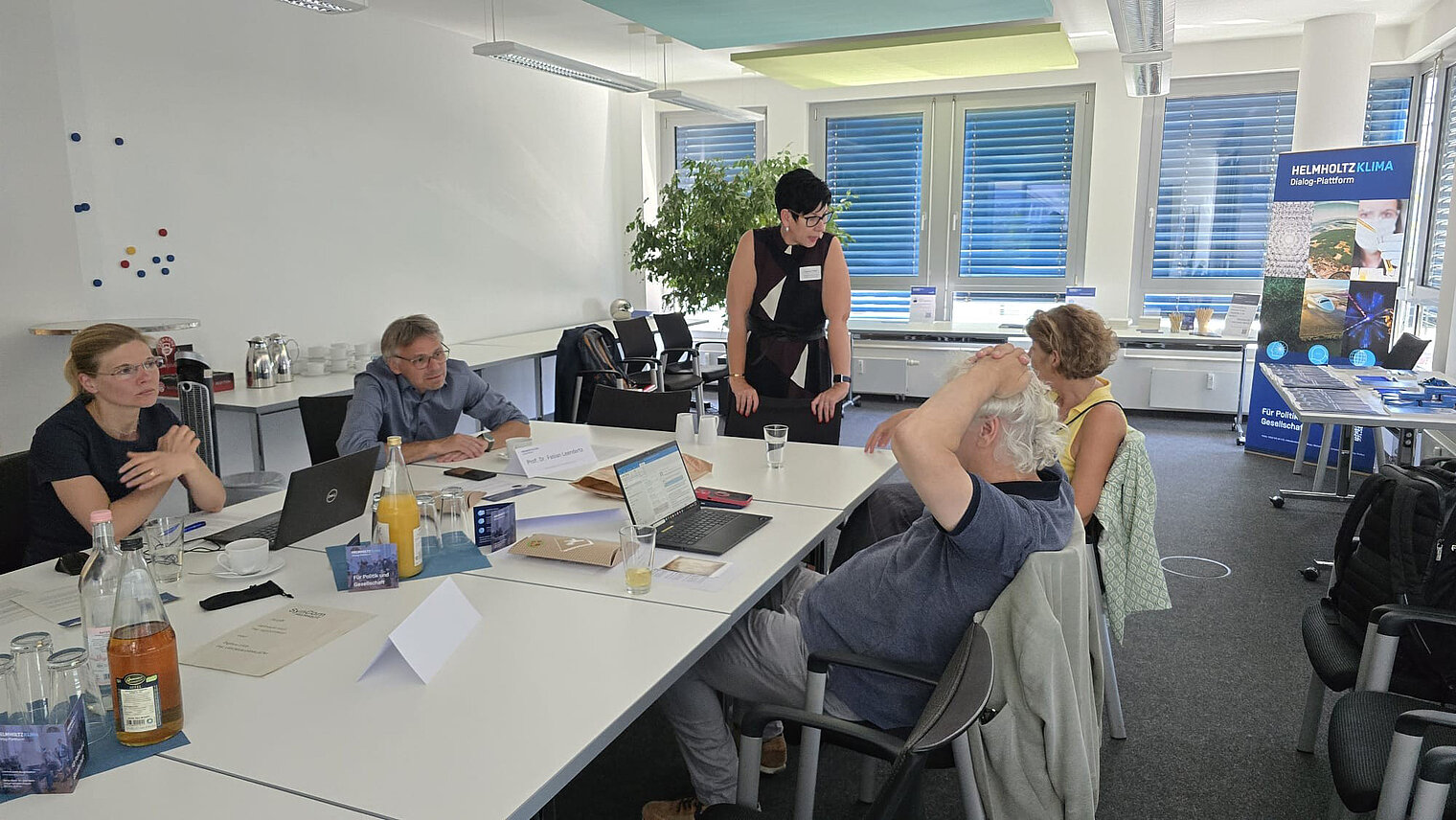Review of the press briefing on July 2, 2025
The press workshop of the Helmholtz Centre for Infection Research (HZI) on July 2, 2025 in Berlin focused on a highly topical issue: the impact of the climate crisis on infectious diseases. An outside temperature of around 36 degrees at the event venue in Berlin-Mitte impressively underlined the urgency of the topic. In cooperation with Helmholtz KLIMA , the dialog platform for climate-related research, the workshop offered in-depth insights into current studies, risk assessments and recommendations for action.
Rising temperatures - growing health risks

The effects of climate change are not only evident in heatwaves or extreme weather events, but increasingly also in the spread of pathogens. New transmission routes, changed habitats of vectors (e.g. ticks, mosquitoes) and increased selection pressure are favoring the emergence of new types of infectious diseases.
"The climate crisis is acting as a catalyst for existing and new health risks," explained Prof. Josef Penninger, Scientific Director of the HZI. He presented the strategic reorientation of the center, in which infectious disease research is linked with climate models and environmental observations.
More about Josef Penninger:
Research contributions of the HZI:
- "One Health Exploratories"
- Impact of climate change on vector-borne diseases (e.g. caused by ticks or mosquitoes)
- Drug development for the treatment of "tropical" infectious diseases
- Early warning systems and population studies
- Biodiversity monitoring
Interdisciplinary research for global challenges

Prof. Fabian Leendertz, Director of the Helmholtz Institute for One Health (HIOH), emphasized the role of interdisciplinary approaches: "Climate change and zoonoses cannot be considered separately. Only with the One Health approach will we be able to detect and contain pandemics at an early stage in the future."
His focus is on regions with a particularly high risk, such as West or Central Africa, where environmental degradation and the spread of pathogens often go hand in hand. Another model region is Mecklenburg-Western Pomerania, a heavily cultivated agricultural landscape in which humans are encroaching ever more deeply into natural habitats, thereby reducing the distance between humans and wild animals.
Projects in focus:
- Establishing One Health exploratories in Africa and Mecklenburg-Western Pomerania, which collect long-term and systematic data on the health of humans, animals and the environment and combine them into a big picture.
Modeling and prevention: How epidemiologists are thinking more broadly about infection control

Dr. Berit Lange, Head of the Department of Epidemiology at the HZI, President of the German Society for Epidemiology and member of the STIKO, presented results from the EU project SUNRISE and the new INFRALINK initiative.
"We need to understand how infection processes develop in critical infrastructures - and which preventive measures are particularly effective there," said Dr. Berit Lange.
Among other things, SUNRISE analyzes wastewater samples and mobility data in order to develop early warning systems for outbreaks of infection. INFRALINK, on the other hand, networks health authorities and research institutions in order to be able to react more quickly to infection situations.
Projects in focus:
Conclusion, further expertise and resources
The press workshop made it clear that the health consequences of the climate crisis are not a scenario of the future, but already a reality. Science, politics and society must work together more closely to systematically record and understand the risks of infection due to climate change - and to counter them effectively. The Helmholtz Centre for Infection Research wants to provide impetus here - and develop new solutions.
Named research groups:
-
 Prof Dr Josef Penninger
Prof Dr Josef Penninger -
 Prof Dr Fabian Leendertz
Prof Dr Fabian Leendertz -
 Prof Dr med. Berit Lange
Prof Dr med. Berit Lange -
 Dr Jan Frederik Gogarten
Dr Jan Frederik Gogarten -
 Prof Dr Katharina Schaufler
Prof Dr Katharina Schaufler -
 Dr Stefanie Castell
Dr Stefanie Castell
Further expertise and resources
Climate change and tick risk:
- Expertise (in German): Stefanie Castell | Helmholtz KLIMA
- Ticks in climate change: Is the risk of infection increasing? | Helmholtz KLIMA (in German)
- HZI research
Infection ecology:
- Expertise (in German): Jan Gogarten | Helmholtz KLIMA
- HZI research
Antibiotic resistance and climate change:
- Expertise (in German): Katharina Schaufler | Helmholtz KLIMA
- HZI research


